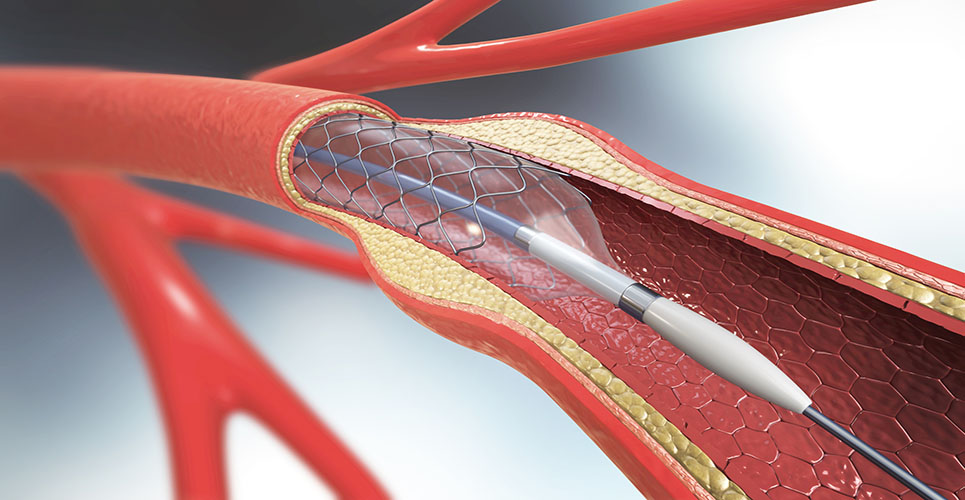teaser
Bare-metal stents (BMSs) should be used rather than drug-elutingstents (DESs) for coronary revascularisation in patients needingnoncardiac surgery shortly afterwards, US researchers say.
Theteam, led by Dr Michael Savage of Philadelphia’s Thomas JeffersonUniversity Hospital, found that a strategy involving BMS implantationin the revascularisation procedure did not result in stent thrombosisafter subsequent noncardiac surgery, a common problem with DESs in thissetting.
Coronary artery disease (CAD) is often discovered,particularly in elderly patients, in presurgical testing for electivenoncardiac procedures. If severe, this represents an immediate problemthat must be treated before the patient undergoes elective surgery.
“Theissue here is that studies have demonstrated that those patients whoreceive DESs may develop life-threatening cardiac complications if theyundergo subsequent, noncardiac surgery,” Dr Savage explained.
Inparticular, with DESs there is an increased risk of fatal myocardialinfarction (MI) due to stent thrombosis, even when surgery is performedmonths or years after stent placement, especially if antiplatelettherapy is stopped before surgery.
Dr Savage and teamdeveloped a four-stage clinical protocol, based on the known timing ofre-endothelialisation and restenosis of the target vessel after BMSimplantation. The strategy involved: use of non-DESs; a four-weekcourse of clopidogrel after revascularisation; deferral of noncardiacsurgery for 5–12 weeks after stenting; and discontinuation ofclopidogrel for a minimum of five days prior to surgery.
Thestrategy was evaluated in 60 consecutive patients with significant CAD(33 men and 27 women) who underwent percutaneous coronary intervention(PCI) prior to planned noncardiac surgery. The patients were aged onaverage 68 years and 27% had diabetes.
Presenting thefindings at the Annual Scientific Sessions of the Society forCardiovascular Angiography and Interventions, held in Orlando, USA, theresearchers reported that 82 lesions were treated with 83 BMSs.
PCIwas successful and uncomplicated in all 60 patients. Noncardiac surgerywas performed on average 47 days post-PCI, with clopidogreldiscontinued a mean of six days beforehand.
No deaths occurred after noncardiac surgery, there was no ST-elevation MI and there were no stent thrombosis events.
Theonly perioperative cardiac complication was non-ST-elevation MI in onepatient, which led to target vessel revascularisation of a new lesion,the researchers noted.
“This research provides a safetreatment strategy for interventional cardiologists and their patientswho will be undergoing further surgery,” Dr Savage said. “DESs haveproven benefits but may not be the best solution for every patient.”
Society for Cardiovascular Angiography and Interventions Annual Scientific Sessions, Orlando, Florida, USA, 9–12 May 2007

